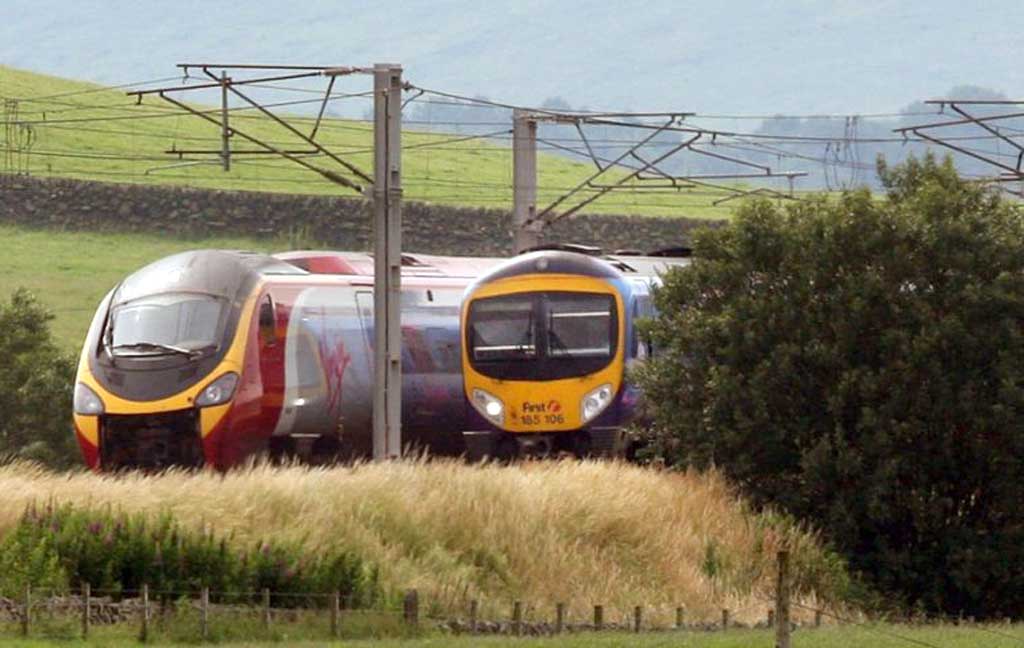Simon Calder: A new train set? Be careful what you wish for
The man who pays his way

Everyone's a winner, according to Tim O'Toole. He is chief executive of FirstGroup, which has been awarded the flagship franchise to run trains on the West Coast mainline against fierce resistance from the incumbent, Virgin Trains. And he promises he will make the going easier for British rail travellers. "We're offering to do more, provide more services and pay the Government more money," he said. More on what he revealed in a moment. On Tuesday morning, however, another branch of FirstGroup (which describes itself as "The world's leading transport operator") was demonstrating how to cut down on rush-hour crowds aboard London's suburban trains, and help commuters stay fit.
The southbound 7.47 from Elephant & Castle may lack the cachet of a northbound 747 from El Salvador but, for anyone aiming for Wimbledon or Sutton, it does the job. Platform 4, the display promised. At 7.47, a train announcing its destination as Sutton drew up. On Platform 2. Sharper, fitter and younger passengers cottoned on, sprinted down two flights of stairs, along a corridor and up more steps two-at-a-time to leap aboard before the doors closed. The slower-witted or kitted failed the heats for this exciting new Olympic sport, and won the booby prize: wait 20 minutes and play "guess the platform" for the next train. A couple of dozen people reach work or school late. So what?
Well, that trivial event is just the kind of misadventure to which passengers and the press will be alert when FirstGroup takes over the West Coast service in December. Or, given the legal challenge from Virgin, if First West Coast becomes a reality. The High Court will shortly consider the merits of Virgin's case – the heart of which is an argument about how many people will opt to travel on the line between Euston, the Midlands, the North-west and Scotland in 2026. This week the two sides warmed up for the legal tussle when they faced MPs on the Transport Select Committee, in a session that included some fascinating revelations about the railways.
The venue was the House of Commons' Grimond Room. In the blue corner was Mr O'Toole of FirstGroup. In the red corner, Sir Richard Branson argued that Virgin Trains had been unfairly robbed of the franchise. He contended: "The money they [FirstGroup] have said they will make in the last three years is extremely unrealistic … Virgin's bid is more deliverable and much more financially robust." He put the cost of the work on his losing bid as £14m. I calculate that cash could instead have provided an on-board coffee for every passenger on West Coast between now and 9 December, when FirstGroup is due to take over.
Watching winners
As a final rejection of FirstGroup's "absolutely preposterous" forecast, Sir Richard said: "Physically, you can't get that many passengers on the trains." But then it was the turn of the FirstGroup boss – who revealed the numbers that train operators like to keep close to their chest. Mr O'Toole said Virgin's "load factor", ie, the proportion of seats that are occupied, is about 35 per cent – in other words, two out of three seats on the average train are empty. (I asked Virgin Trains to confirm or refute the figure, but the company declined.) If Virgin Atlantic flew as empty as its railway cousin, it would be out of business in no time, but train operators have a more flexible view of load factor than airlines. Indeed, unlike airlines, train companies are comfortable with the occasional train that carries more than 100 per cent of the seating capacity – although the standing passengers may not be. So long as peak-hour trains are full of high-spending passengers, the number of empty seats the rest of time is not of huge concern.
Both bidders have promised extra trains. But if 30 million passengers are carried each year at 35 per cent occupancy, the existing trains should, in theory, be able to handle almost three times as many people. As it happens, Mr O'Toole said he was not expecting to do better than half-fill his trains. But how will he entice even that extra 15 per cent on board? Partly, he said, by cutting fares to lure people who don't use the trains at present. By January 2014 the firm will reduce "Anytime" tickets by 15 per cent. That will shave £22 off the current £148 top fare from Manchester Piccadilly to London. The FirstGroup boss revealed the research that led them to promise fare cuts: "Most non-users of rail believe that the price is anywhere between 40 and 80 per cent higher than it actually is."
Overall, he said, fares will rise in line with inflation: "We don't think the market would take more than that," said Mr O'Toole. Again, we will be watching. If incidents such as the rush-hour platform steeplechase start to happen at, say, Crewe, FirstGroup may wish, down the line, it hadn't wished so much for the West Coast.
Track records
Did everyone win in style during the Olympics? Not Virgin Trains. Graham Leech, the firm's commercial director, told the MPs that the Department for Transport had projected such huge passenger numbers that Virgin would see a net gain from the Games of £15m. "As it happens," he said, "the benefit has been £1m."
Over at Heathrow, BAA revealed that, rather than breaking all records, as promised this summer, traffic at Heathrow in July and August was "Lower than originally expected". The firm said: "The shortfall is not expected to be recovered later in the year". Tricky things, forecasts.
Join our commenting forum
Join thought-provoking conversations, follow other Independent readers and see their replies
Comments